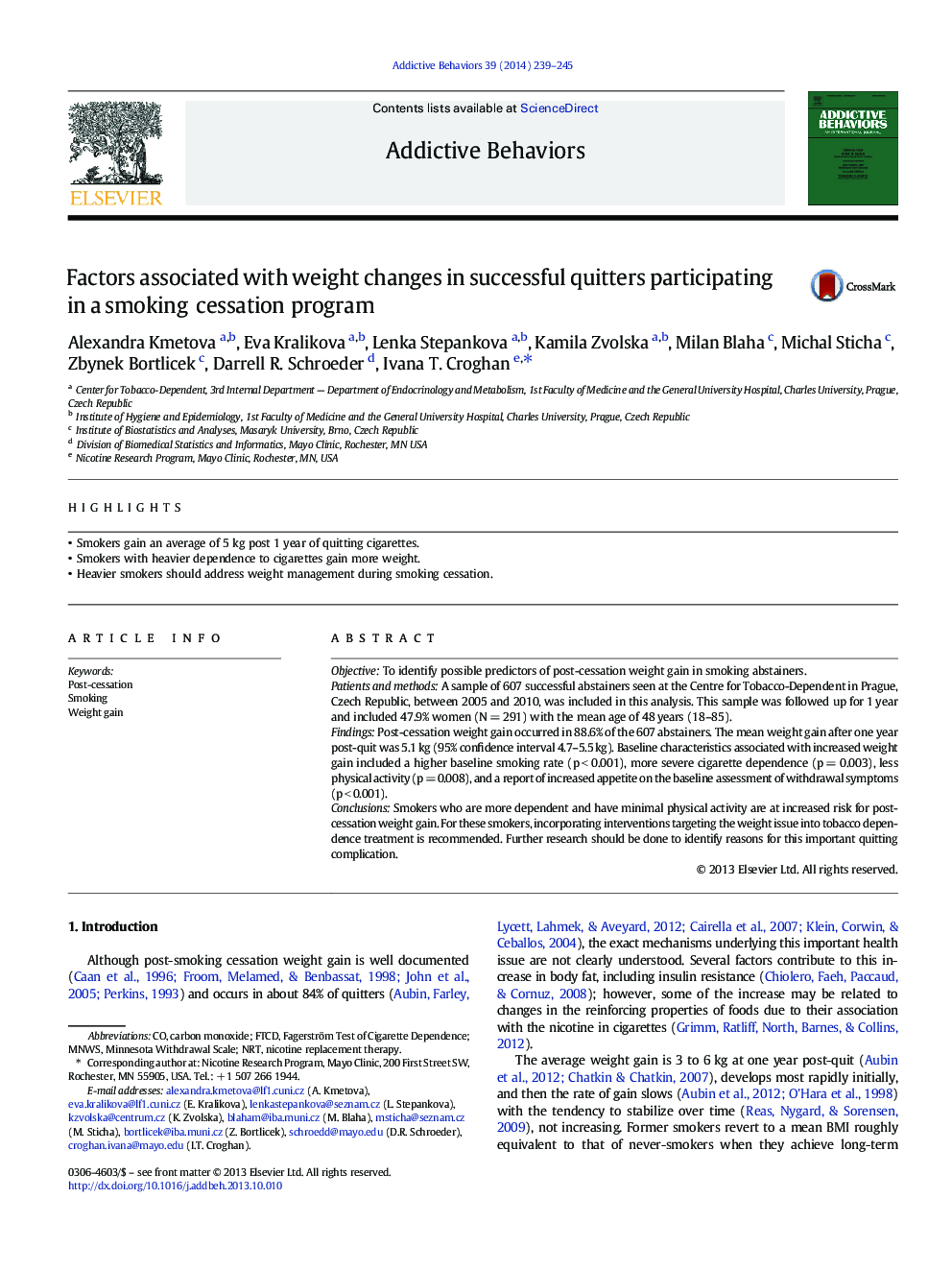| کد مقاله | کد نشریه | سال انتشار | مقاله انگلیسی | نسخه تمام متن |
|---|---|---|---|---|
| 898999 | 915352 | 2014 | 7 صفحه PDF | دانلود رایگان |
• Smokers gain an average of 5 kg post 1 year of quitting cigarettes.
• Smokers with heavier dependence to cigarettes gain more weight.
• Heavier smokers should address weight management during smoking cessation.
ObjectiveTo identify possible predictors of post-cessation weight gain in smoking abstainers.Patients and methodsA sample of 607 successful abstainers seen at the Centre for Tobacco-Dependent in Prague, Czech Republic, between 2005 and 2010, was included in this analysis. This sample was followed up for 1 year and included 47.9% women (N = 291) with the mean age of 48 years (18–85).FindingsPost-cessation weight gain occurred in 88.6% of the 607 abstainers. The mean weight gain after one year post-quit was 5.1 kg (95% confidence interval 4.7–5.5 kg). Baseline characteristics associated with increased weight gain included a higher baseline smoking rate (p < 0.001), more severe cigarette dependence (p = 0.003), less physical activity (p = 0.008), and a report of increased appetite on the baseline assessment of withdrawal symptoms (p < 0.001).ConclusionsSmokers who are more dependent and have minimal physical activity are at increased risk for post-cessation weight gain. For these smokers, incorporating interventions targeting the weight issue into tobacco dependence treatment is recommended. Further research should be done to identify reasons for this important quitting complication.
Journal: Addictive Behaviors - Volume 39, Issue 1, January 2014, Pages 239–245
